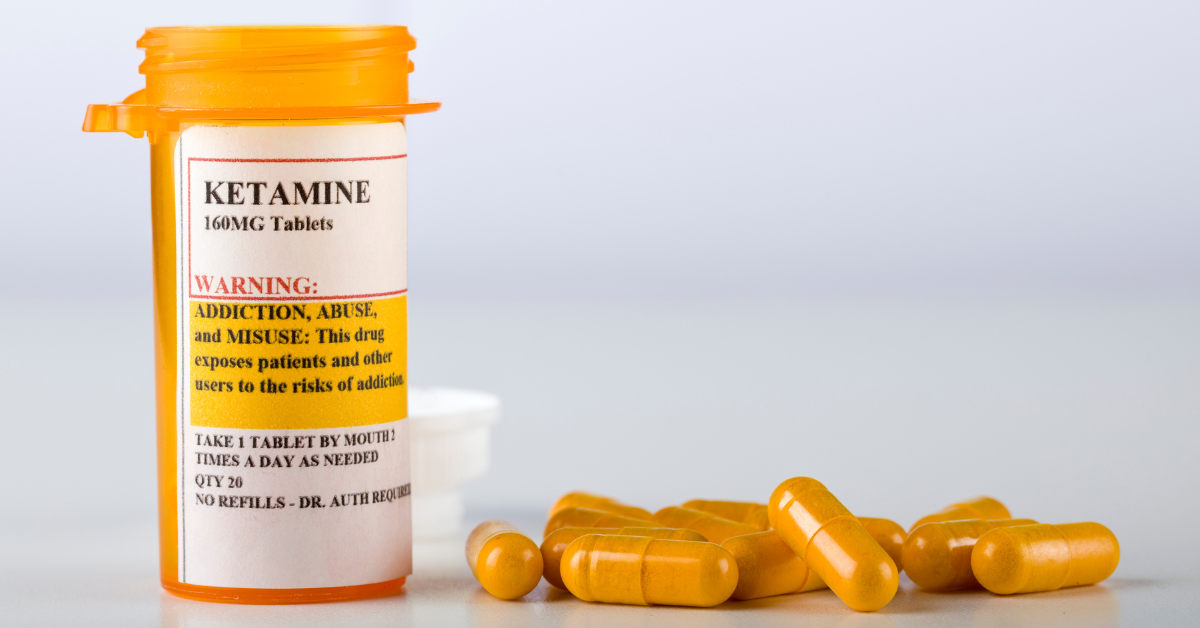To answer simply, no, ketamine is not an opioid. Still, this question comes up consistently for a slew of reasons, most of which stem from the fact that the functions of this substance are similar. While ketamine and opioids both serve as potent analgesics, their pharmacological mechanisms and chemical structures differ significantly. Despite these distinctions, the confusion persists, likely due to the shared objective of pain relief and the prevalence of both substances in medical and recreational contexts. After answering the question “Is ketamine an opioid?” it is worth exploring what makes these drugs different and similar, and why they should be avoided in all recreational settings. Read on to learn more about this topic with Diamond Recovery.
Ketamine vs. Opioids: Similarities and Differences
In the realm of pain management and anesthesia, two classes of drugs stand out: ketamine and opioids. While both are potent analgesics, they differ significantly in their mechanisms of action, effects, and potential risks. Understanding these disparities is crucial for clinicians and patients alike.
Similarities between ketamine and opioids include:
- Analgesic Properties: Both ketamine and opioids are known for their analgesic effects, offering relief from pain through distinct pharmacological pathways.
- Central Nervous System (CNS) Depression: Both drug classes can depress the central nervous system, leading to sedation and respiratory depression. However, the degree of depression and onset may vary.
Differences between the substances include:
- Mechanism of Action: Ketamine operates primarily as an NMDA receptor antagonist, modulating glutamatergic transmission and inhibiting pain signaling pathways. In contrast, opioids exert their effects by binding to opioid receptors, particularly μ (mu) receptors, leading to reduced perception of pain.
- Side Effect Profile: While both ketamine and opioids can induce sedation and respiratory depression, ketamine is less likely to cause respiratory depression at therapeutic doses compared to opioids. Opioids are also associated with a higher risk of constipation, tolerance, dependence, and addiction, which are not commonly observed with ketamine.
- Psychotomimetic Effects: Ketamine is renowned for its dissociative properties, often inducing hallucinations and perceptual distortions at higher doses. This aspect sets it apart from opioids, which do not typically produce such psychedelic effects.
- Potential for Abuse and Addiction: Opioids have a well-documented potential for abuse and addiction, contributing to the opioid crisis in many parts of the world. Ketamine, while not entirely devoid of abuse potential, is less commonly abused compared to opioids.
- Clinical Applications: While opioids are primarily used for pain management across various medical settings, ketamine has a broader spectrum of applications. Besides analgesia, ketamine is utilized as an anesthetic agent, particularly in settings where maintaining respiratory function is critical, such as in trauma cases or pediatric anesthesia.
Is ketamine an opioid? No, while ketamine and opioids share the common goal of pain relief, their mechanisms of action, side effect profiles, and clinical applications diverge significantly. Clinicians must carefully weigh the benefits and risks of each drug class when selecting the most appropriate analgesic regimen for individual patients.
Can You Overdose on Ketamine?
Like any powerful drug, ketamine has the potential for overdose if not administered properly. Although ketamine has a wide therapeutic index, which indicates that there is a significant difference between a therapeutic and toxic dose, overdosing on prescribed dosages or mixing ketamine with other CNS depressants might result in overdoses. Ketamine overdose symptoms range from moderate to severe, including confusion, hallucinations, respiratory depression, and even loss of consciousness. Extreme ketamine overdoses can cause potentially fatal side effects such as acute respiratory depression or cardiovascular collapse and require emergency medical attention.
Even though ketamine overdose is a possibility, fatal occurrences resulting from ketamine administration are uncommon, particularly when the drug is used in therapeutic settings under the guidance of qualified medical personnel. However, in recreational or illicit use settings where doses and purity levels are unknown and coupled with other substances, the risk of overdose rises dramatically. Consequently, it’s critical that anyone taking ketamine—for therapeutic or recreational purposes—follows the recommended dosage guidelines and doesn’t combine it with other substances that could intensify its effects and raise the danger of overdosing. To guarantee quick medical attention and action in the event of a suspected overdose, it is also critical to seek assistance from healthcare professionals or emergency services.
Treating Opioid Addiction at Our Florida Rehab
As a rehab in Florida, we offer a comprehensive approach to opioid addiction treatment. Our specialized programs include opioid detox, tailored addiction treatment, and various therapy options. From ensuring a safe detox process to providing evidence-based interventions and comprehensive therapy, we are committed to supporting individuals on their journey to lasting recovery from opioid dependence.





